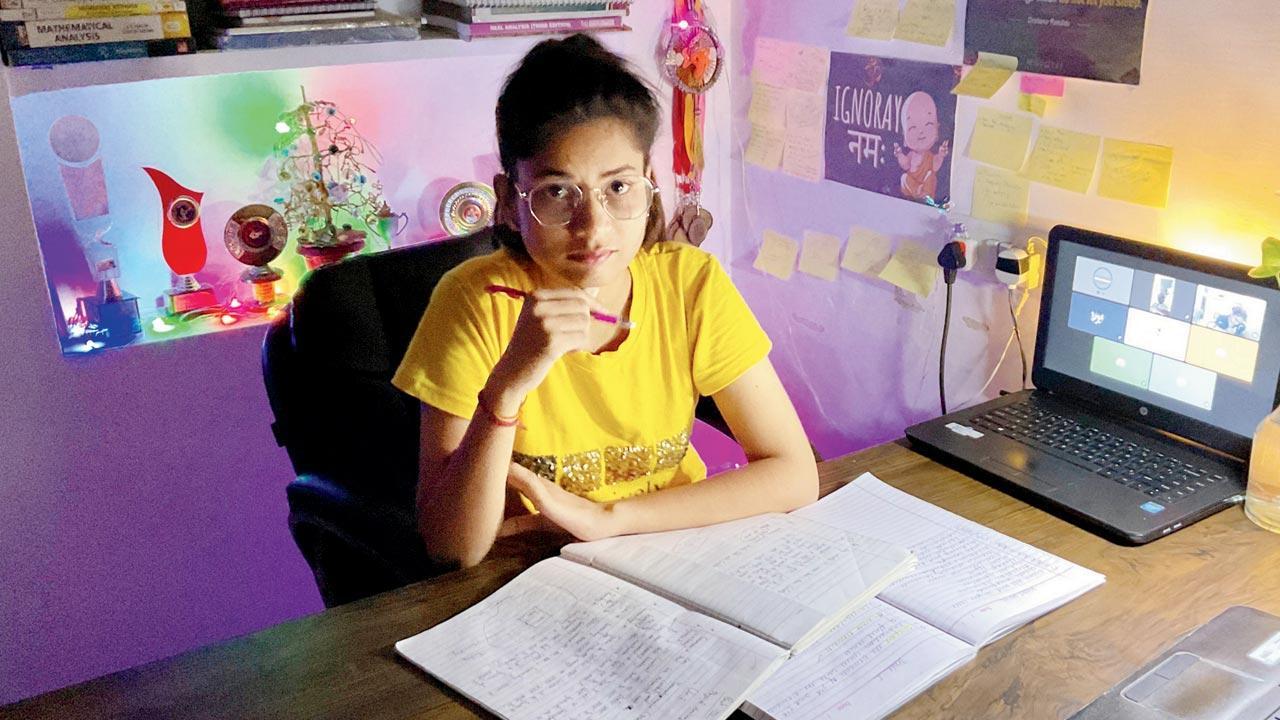Medical aspirants and students prepping for competitive exams are flocking online to cram with the help of study-with-me YouTubers. Here’s why 12-hour study streams from your bedroom are now the norm

Umesh Saini and his sister Vaishali stream from their home in Sultanpur, Uttar Pradesh
Shrutakeerti P Nadagoudapatil is a NEET (National Eligibility Cum Entrance Test) aspirant from Bengaluru. What that means is that she is always studying. If she does get some time off, she studies in that window too. But she does it online, with thousands of others, who gain motivation from her. When she breaks for coffee, they do too; when she has lunch, they also walk away for a bite; when she skips boring physics and reaches out for a biology text book, so do they.
ADVERTISEMENT
Nadagoudapatil, 17, is one of several studying with an online community, leading them to academic perseverance. But she says, she stands apart. “Most ‘study-with-me’ videos on YouTube are super perfect. Students wake up at 5 am to study. It’s not sustainable in the long run. I am raw and real. If I get bored, I say, I am bored,” Nadagoudapatil tells us.
Umesh recently completed a 12-hour streaming study session on YouTube
Nadagoudapatil’s parents are doctors practicing in North Karnataka. She is studying to be an ophthalmologist and launched her YouTube channel last September after the first study-with-me video she posted got three lakh views. She is now part of a growing tribe of teenagers who are known as ‘study-with-me YouTubers’, and create productivity videos.
The trend started with medical students, but now covers students studying to enter a variety of streams. According to YouTube, the number of study-with-me videos uploaded by medical students tripled between 2019 and 2020. Most of these are two to four hours long, though there are some that go on for 10 hours as well.
Shrutakeerti P Nadagoudapatil is a NEET aspirant from Bengaluru, who would rather make “study-with-me” videos than hang with real friends
Many of them use the Pomodoro Technique, a time management method that portions work sessions into chunks, marked by periods of short rest. This genre of videos seems to have first gathered followers in South Korea, but now is popular all over the world, enjoying millions of views.
Nadagoudapatil now has 25,100 subscribers, and says that she is compelled to pay attention to the thinks video’s aesthetic appeal before she puts it up. “I sometimes wonder if I should have a sunrise or sunset behind me, or if I want to take a break and show myself eating ice cream. I think these videos work because kids my age have no motivation, and being on my channel is like hanging out with a friend. I am the average student, and they can relate to me.”
Hvovi Bhagwagar and Anastasia Dedhia
Her parents have accepted this strange form of content creation as her hobby and don’t mind it until it interferes with her own studying. She quips. “Little do they know, I rather study and hang out on YouTube, than with my real friends.”
While content creation for hand held devices and interest in video has grown manifold during the pandemic, it seems to have permeated the education sector too. Clinical psychologist Anastasia Dedhia says that adolescents have almost stopped reading. This is a visual generation. “This way, they can also avoid social contact. So they don’t need to be exposed, or make conversation, but they still enjoy a social experience, and can work on schedule.”
Umesh Saini, who holds an MSc degree in Mathematics, is now studying for the CSIRNET Entrance exams. He hopes to become a college professor. He has been running his channel, which has 24,500 subscribers, since October 2020, and now is a master at 12-hour streaming videos. “All kinds of kids—studying for NEET, engineering, board exams—log in. I also take tuitions, offer advice, and tips on how to study more productively,” says the 24-year-old son of a government college education officer. His sister, Vaishali, who has a BSc degree, also makes videos and takes online classes. The two have figured out a way to make their videos “prettier”. “We now have a good tripod, and professional lighting. We also add little touches sometimes, like making chai or chatting with each other. It’s a combined experience [we are offering].”
The attraction of these videos is evident from a comment left on YouTube by a student: “Just knowing someone else is studying with me made these two hours more tolerable. Whenever I have a ‘study buddy’ with me, it really helps me keep focused on what I’m doing.”
Interestingly, the creators seem to be recreating the atmosphere of a tuition class, where we caught up with friends. Students prepping for tough exams like NEET face tremendous pressure, and need emotional and social support. This seems to provide them that,” says psychologist Hvovi Bhagwagar. “Sometimes, one brain is not enough. It’s about bonding too. Children today are lonely, and this sort of video populates their day. Even if they don’t know the person they are watching, the camaraderie becomes beautiful.”
 Subscribe today by clicking the link and stay updated with the latest news!" Click here!
Subscribe today by clicking the link and stay updated with the latest news!" Click here!






